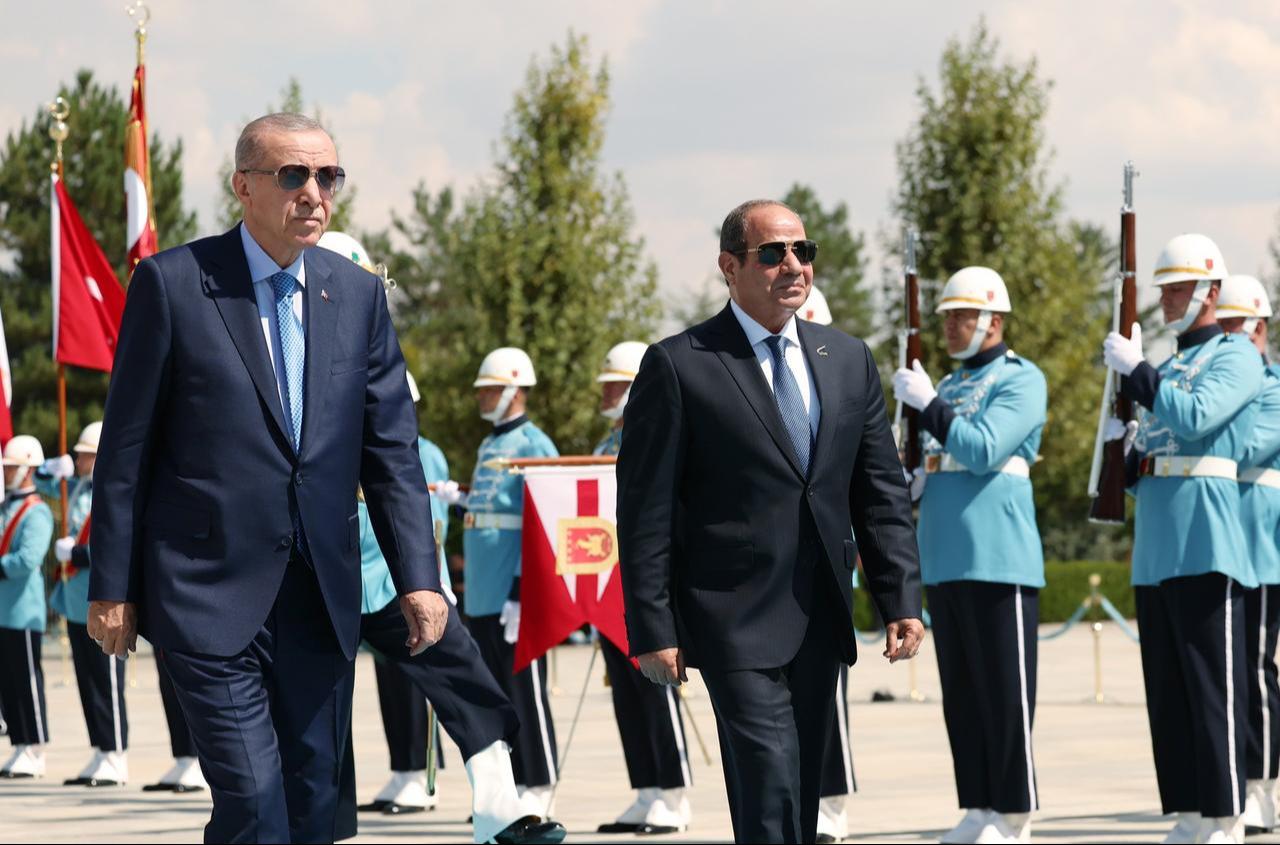

Türkiye and Egypt concluded the 'Sea of Friendship 2025' naval exercise between Sept. 22 and 26 in the Eastern Mediterranean.
After nearly 13 years, this was neither an ordinary nor a routine event in the shifting Middle East geopolitical landscape.
To be precise, the context is critical: the exercise followed the signing of a mutual defense cooperation agreement between Saudi Arabia and Pakistan, which stipulates that an attack on either country would be treated as an attack on both—an allusion to NATO’s Article 5 guarantee.
The pact encompasses all military means, conventional and unconventional, effectively placing Saudi Arabia under Pakistan’s nuclear umbrella.
In the aftermath of Israel’s Sept. 9 attack in Qatar, speculation arose over whether a comparable arrangement could one day emerge between Türkiye and Egypt.
Analysts framed the exercise as both a symbolic and practical milestone.
These developments, among others, signal a realignment in the troubled waters of the wider Middle East.
While alignments in the region are often fluid, irregular, and context-specific, the decision to resume the 'Sea of Friendship' maneuvers may carry far-reaching consequences that extend beyond the headlines, reaching into the Eastern Mediterranean sub-region.
The resumption of the Turkish-Egyptian naval cooperation is best understood with Barry Buzan’s premise of a “regional security complex” or Steven Walt’s “balance of threat,” where alliance decisions are based not only on the offensive power and geographic proximity of an opponent but also on how aggressive its intentions are.
Within this framework, security perceptions—whether of friendship, rivalry, fear, or suspicion—shape interstate behavior, while actors, through speech acts, socially construct certain issues as security threats, thereby legitimizing the resort to extraordinary measures.
Since the outbreak of the Gaza War in October 2023, the Lebanon War in October 2024, repeated Israeli strikes in Syria, the Israeli–U.S. assault on Iran in June 2025, and lastly Israel’s strike on Doha in September 2025, Egyptian and Turkish concerns about Israel’s agenda have deepened and become more vocal.
For both Cairo and Ankara, counter-realignment has become a vital tool to enhance their security against perceived threats from Israel’s hegemonic ambitions.
In fact, Egypt and Türkiye now converge on perceiving Israel as a primary threat.
Egyptian President Abdel Fattah el-Sisi, speaking at the Arab-Islamic Emergency Summit in Doha, described Israel as “the enemy” for the first time since 1979. Cairo has even called for a regional military alliance akin to an “Arab NATO” in response to Israel’s actions.
Ankara’s ties with Israel, meanwhile, have reached their lowest point in years due to the destruction of Gaza, Israel’s hostility toward the new Türkiye-backed government in Syria, and occasional threats to attack Turkish interests in Cyprus.
President Recep Tayyip Erdoğan blasted Israel in his latest remarks at the U.N. General Assembly in New York, saying that “Israel is committing a 'complete genocide' in Gaza.”
Türkiye is also seeking partners to counterbalance Greek moves in the Eastern Mediterranean, as Athens continues pressing Libya to abandon the 2019 Turkish-Libyan maritime delimitation agreement (MoU).

Since rapprochement began in 2022 following over a decade of estrangement, Türkiye and Egypt have expanded military and economic cooperation.
Türkiye is now Egypt’s second-largest export destination in the region after Saudi Arabia, reinforcing a deepening economic interdependence—particularly significant amid the current economic crunch.
Analysts describe the 'Sea of Friendship' exercise as a cautious yet notable thaw, reflecting a restoration of trust sufficient to allow military cooperation—but not a strategic game-changer.
Both parties continue to safeguard their enduring national interests under evolving domestic and regional conditions.
Egypt’s firm rejection of Türkiye’s maritime boundary agreement with Libya underscores that Cairo has not altered its core strategic stance, while Türkiye’s push to secure ratification of the 2019 MoU by the Libyan House of Representatives—most recently rejected by Egypt in a note verbale to the U.N. on Sept. 8—highlights the persistence of underlying disagreements.
Others highlight broader opportunities for defense industry collaboration, modernization projects, and even humanitarian missions.
This indicates that the rapprochement is underpinned not only by joint military exercises but also by sustained political dialogue and concrete economic initiatives, suggesting a relationship that extends beyond a symbolic gesture.
At the same time, the maneuvers carried a strong political message. The drills began at Türkiye’s Aksaz naval base and continued in waters between Cyprus and Egypt, areas long fraught with geopolitical tension.
Coming just days after the Sumud flotilla set sail for Gaza, the exercise signaled to Israel that Ankara and Cairo share overlapping interests and could align more closely if provoked.
The shifting alignments also highlight the broader transformation of regional blocs. Until 2023, Türkiye, the UAE, Saudi Arabia and Egypt were often at odds.
Yet the Gaza war and Israel’s hegemonic ambitions to dominate the region have prompted a cautious rapprochement, leaving Greece increasingly isolated as the only country openly supporting Israel through defense contracts and the “3+1” framework with the Greek-administered part of Cyprus.
Thus, Egypt–Türkiye security ties are marked by growing amity between the two states, coupled with intensifying enmity toward Israel.
These patterns of alignment and opposition play a decisive role in shaping the regional security complex.
Where amity prevails, positive interdependence fosters cooperation and the potential for a security community, as demonstrated between Saudi Arabia and Pakistan.
Where enmity dominates, as is the case between Türkiye and Israel since the Gaza war, negative interdependence fuels conflict formation.
The 'Sea of Friendship' 2025 exercise represents more than a thaw in Turkish-Egyptian relations.
It illustrates how shifting perceptions of threat, particularly toward Israel, are reconfiguring alignments across the Middle East.
While it does not mean Ankara and Cairo’s strategic positions are fully aligned, it signals that the days of polar-opposite estrangement are behind them.
Military cooperation, reinforced by economic ties and political dialogue, suggests that the two powers are recalibrating their roles within an increasingly volatile regional security complex—where amity and enmity continue to dictate the contours of conflict formation.
By Trends Research and Advisory experts Dr. Ayman Eldessouki and Dr. Serhat S. Cubukcuoglu